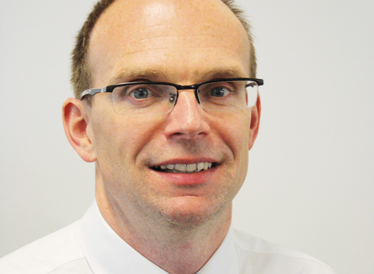Ace Assessor
Sitting Down With... Daniel O’Connor, Medical Assessor at the Medicines and Healthcare Products Regulatory Agency (MHRA), UK, and one of the Industry Influencers on our 2017 Power List.

How did you get involved with the MHRA?
I started my career in science and I’ve always been interested in translational research, particularly oncology. After my PhD I embarked on medical studies because I wanted to better understand the clinical implications of my work in cancer research. During that time I also worked as a post-doc and it was sometimes difficult to balance the science and medical school at the same time, but very useful to keep my hand in. Admittedly, I didn’t get too much research done towards the end! After some junior jobs in the NHS, I became a clinical lecturer at UCL / Ludwig Institute for Cancer Research, which was exactly what I had always wanted to do – working on the translational aspects of clinical research. However, one day, I saw a job advertisement for a medical assessor position at the MHRA – and I was intrigued. I liked the idea of contributing to public health on a broader level. I got the job – and I’ve never looked back.
How did you find the leap from lecturer to regulation?
It was certainly a very steep learning curve! I had no regulatory experience and only a very top level view of drug development. But the agency is very supportive; mentors are assigned to new recruits to help them learn the ropes, and career development is encouraged. I started out as an associate and I have now been an expert assessor for a number of years. It is very gratifying to have reached this point after entering the field as a complete newbie! I really missed patient interaction and my research at first, but that changed as I joined various working parties, contributed to scientific advice and took on more complex new drug applications.
What qualities make a good assessor?
Attention to detail is crucial for effective evaluation of protocols or new medicine applications. A new product dossier may contain thousands of pages, and you have to carefully review which data are critical and which are supplementary, and summarize your views in a concise and understandable report. You also need balance and the ability to make difficult decisions. Uncertainty is intrinsic to the regulatory approval process; you must be able to decide on what is an acceptable level of uncertainty, and that involves striking a balance between what data you’d ideally like to see and what you can live without.
How are you involved with the EMA?
I am the UK representative on the EMA Committee for Orphan Medicinal Products (COMP). I also sit on the Scientific Advice Working Party as a COMP representative, and on the Patient and Consumer Working Party I’m also an observer for the EMA Oncology working party. I find it very rewarding to be involved with EMA working parties and it is an excellent way of seeing and contributing to the latest, cutting edge pharmaceutical and regulatory developments.
In terms of my work with COMP, it has been exciting to see interest in the rare disease space increase dramatically. When I first joined the committee, we had maybe one and half days of meetings per month. Now we have packed-out three day meetings, which reflects the volume of new products being developed for orphan diseases. In part, orphan disease drug development has been aided by the fact that you can apply for orphan designation without clinical data, which is encouraging more academics to get involved in the field and interact with regulators.
What are your proudest achievements to date?
I was involved in setting up the MHRA’s “Early Access to Medicines Scheme”. I’ve always been passionate about patient access to new drugs, and the scheme has helped hundreds of patients to benefit from medicines prior to marketing authorization. It’s very rewarding to make a difference directly to people’s lives as a medicines regulator with a desk job!
Secondly, on behalf of the Oncology Working Party, I was the lead on a new appendix guideline on patient-reported outcome measures in oncology studies published in 2016. This was the first new patient-reported outcome document since 2005, and I think a real watershed moment in terms of inclusion of patient-centric endpoints in regulatory decision making.
What big change would you like to see in the industry?
I would like to see better communication regarding the drug development process between different stakeholders. Education around the different aspects of drug development, as well as the respective roles of industry and regulators, would be particularly helpful. This would help balance some of the views regarding patient access and the public may better understand why it takes a long time for a drug to be developed and approved. More shared workshops between regulators, industry, patient groups and academics would also help dispel some of the myths and help to move difficult issues forward.
As I mentioned, I sit on the Patient Consumer Working Party, which is a great example of how to improve the engagement of regulators with patients and consumers. At the MHRA, we also think it’s important to undertake public engagement activities, and have a patient consultative forum which is growing year on year.
Finally, I hope that as our understanding of disease improves we will see new therapies – not just new, advanced therapies, but also older drugs being repositioned and repurposed for different diseases. Orphan drug regulation encourages that kind of repurposing, which I think is really exciting. But advanced therapies will also be very important for the future –we are on the cusp of some very important developments in cell therapies and gene therapies over the next decade.



















